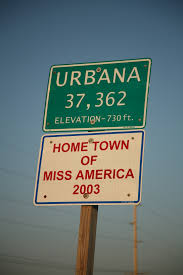Earlier on in my life as a writer I wrote a newspaper story about two Chicago women who’d won a trip to the Academy Awards. When I interviewed the two of them they described trying on dresses for the occasion at a Chicago studio on N. Elston that names dresses after old movie stars. “I bought the Grace,” one of them laughed, glancing down at her own figure. “But maybe when I wear it, it’s a Liz!
The editor insisted I take that line out. Readers who recognize my byline know I’m blind, she said. How could a blind person know someone was glancing down? They’d question the story.
I had been standing right next to the woman when she said it. I’d heard her voice go down, then up. I’d felt her movement. I knew she’d glanced at herself. Sorry, the editor said. The quote had to go.
Later on I wrote a magazine profile of a female brigadier general. A photo would appear with the story, so I didn’t bother describing what the general looked like. But you need visuals, the magazine editor told me. It’s part of good journalism.
I could have just asked the editor what the photo looked like and written that into the story. But that didn’t seem, well, like good journalism. So I picked up the phone and called the general. Her secretary answered. I told her my predicament and asked if she could tell me what her boss looked like.
The secretary thought about this a long while. Finally she said, “All of us around her, even though we know she’s only five foot one, think she’s seven feet.”

Illinois Attorney General Republican candidate Erika Harold hails from Urbana, Illinois.
What a great quote. I used it in the article. The magazine editor kept it in. She called a few months later and said she couldn’t make it to a pre-arranged interview with the new Miss America, a young woman from Illinois. Could I do the story? I said yes, and suddenly the editor sounded sorry she’d asked. ”Can a blind writer interview a beauty queen?” she wondered out loud. I had to convince her I could. An excerpt from the published story:
Leading me to her hotel suite, Miss America seemed completely unfazed by my Seeing Eye dog or my blindness. “I’m used to diversity,” she said. Describing her looks, she explained that her mother is part African-American and Cherokee Indian; her father Greek, German, and Russian. “I have caramel-colored skin, long brown hair, and very expressive brown eyes,” she told me. “I think it’s very hard for people to tell exactly what I am.”
I wonder. Would Miss America have uttered that last incisive line to a sighted reporter? I think not. The beauty queen I wrote about for that story has been interviewed a lot this year–she used her winnings as the 2003 Miss America to pay her way through Harvard Law School. Now Erika Harold is the Republican candidate running against Democrat Kwame Raoul for Illinois Attorney General. Raoul is the son of Haitian immigrants and has been in the Illinois state senate since 2004, when he was appointed to fill Barack Obama’s seat. I don’t know what either one looks like, but I read the papers. I listen to the radio. I know their views, and as columnist Mary Mitchell put it in the Chicago Sun-Times, “Although both of these candidates are black, they could not be more different and are an example of the ideological diversity that exists among African-Americans.”
Diversity takes many forms. I’m looking forward to heading to the polls Tuesday.
I love this! All of it. The bit about you describing the interview when you described the woman looking down as she spoke. The way the beauty queen described herself to you. That very would have been lost if a sighted interviewer were doing the story, but we rarely identify what is lost when those who have been centered as the so-called “norm” interview, tell a story, do whatever task or work is being done. Nor do we acknowledge what is gained when someone who has been marginalized takes the helm. Nicely done! I also love that the accompanying image is a sign post of her home town with an additional sign stating that it is the hometown of Miss America 2003, rather than an image of her. We are fortunate to be witness to your brain at work, Beth! Thank you!
You get it! Thank you, Susanne. One thing, though. Mike Knezovich deserves the credit for choosing that photo. Maybe after living with me so long he sees things, ahem, the way I do.
Such a great post. I don’t think there’s much that you can’t do…you are such an inspiration!
Oh, Tara, you are sweet. There are tons of things I can’t do, I just choose not to write about them!
Great article Beth!
Beth, I am a blind columnist at the Tennessean in Nashville. I relate to this post so much. Thanks.
Wow. How cool to hear from you! I’m going to hit the “send” button on this comment and head write to The Tennessean to check out your work. Stay tuned….
Another great column. Your writing always forces me to think about something I had never thought about before. Thanks.
Thanks for the comment, , Sharon. May the force be with you.
Leave a Response